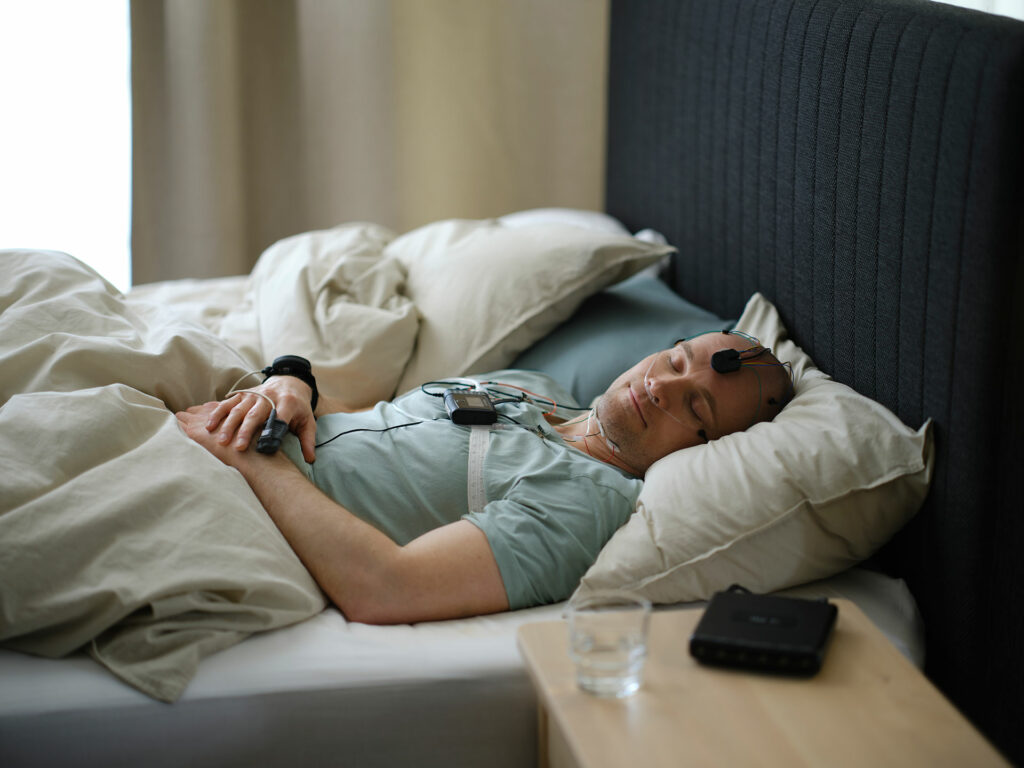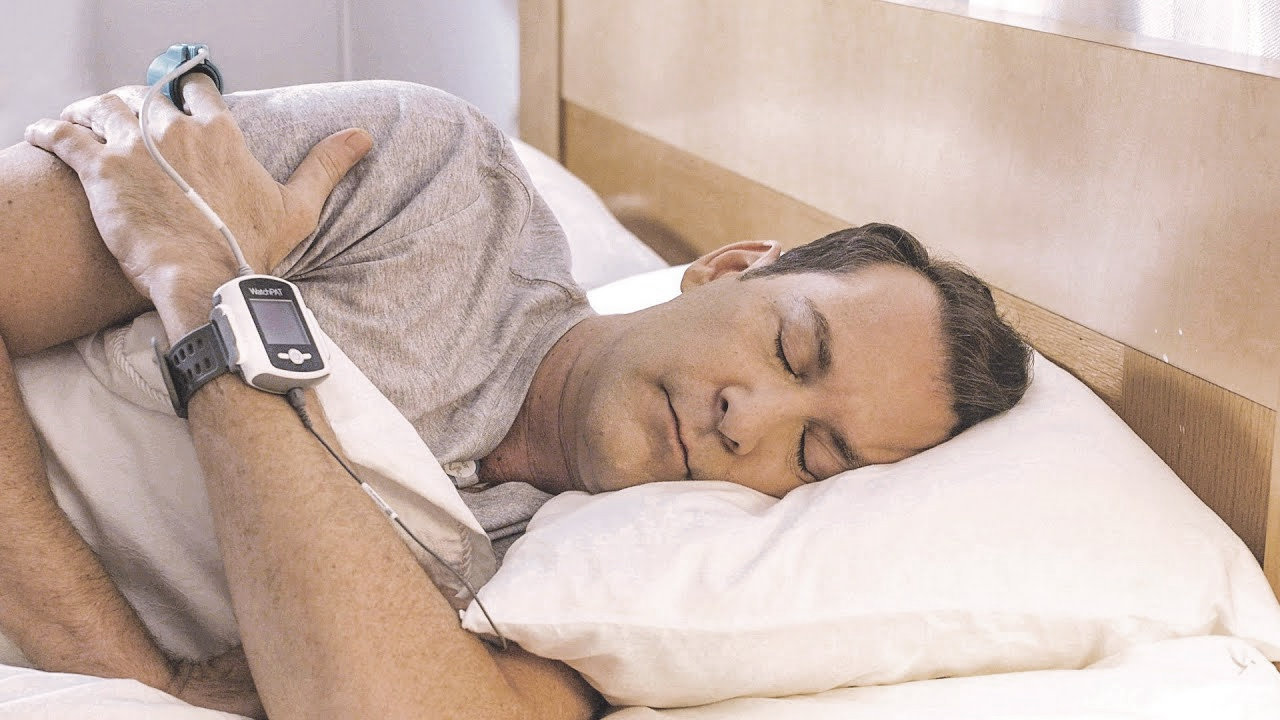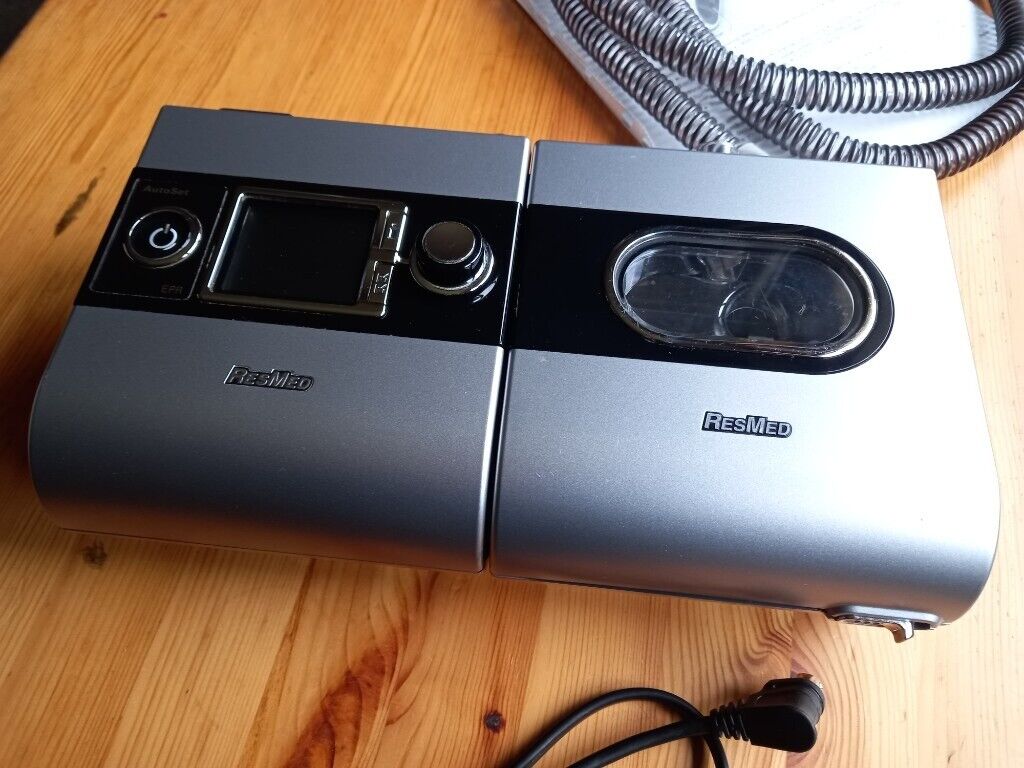Category: Sleep Apnea
Sleep Study Ipswich: Analysing Sleep Patterns in Queensland
Sleep is a fundamental aspect of our daily lives, yet it is often overlooked and undervalued. In recent years, sleep disorders have been on the rise, leading to a growing concern for public health. To shed light on this issue, a comprehensive sleep study was conducted in Ipswich, Queensland. The study aimed to analyze sleep patterns in the region and provide valuable insights into the importance of sleep and its impact on health.
Understanding the Importance of Sleep
Before delving into the details of the sleep study in Ipswich, it is essential to grasp the significance of sleep itself. Sleep is not merely a state of rest; it is a complex physiological process that allows our bodies to rejuvenate and restore. During sleep, our brain consolidates memories, repairs tissues, and regulates essential bodily functions. Without adequate sleep, our cognitive abilities, immune system, and overall well-being are compromised.
With the aim of gathering data on sleep study ipswich in Queensland, the sleep study in Ipswich followed a systematic methodology.
The Science Behind Sleep
Scientists have been intrigued by the science behind sleep for centuries. Through extensive research, they have discovered that sleep is regulated by two main processes: the sleep-wake homeostasis and the circadian rhythm. The sleep-wake homeostasis ensures that we have a sufficient need for sleep based on our awake time, while the circadian rhythm coordinates our sleep-wake cycles with the natural light-dark cycles of the day.
Sleep and Health: A Direct Connection
Studies have consistently shown a direct connection between sleep and overall health. Lack of sleep has been associated with a wide range of health problems, including cardiovascular diseases, obesity, diabetes, and mental health disorders. Furthermore, chronic sleep deprivation can impair cognitive function, decrease productivity, and increase the risk of accidents. Understanding this connection is crucial for developing effective strategies to improve sleep health.
One fascinating aspect of sleep is the role it plays in memory consolidation. During sleep, the brain processes and stores information gathered throughout the day, strengthening neural connections and enhancing our ability to recall and retain information. This process, known as memory consolidation, is vital for learning and academic performance. It is no wonder that students who prioritize sleep often perform better in exams and have improved cognitive abilities. Learn more about cognitive abilities visit at https://www.brookings.edu/wp-content/uploads/2016/06/05education_dickens.pdf.
Additionally, sleep is closely linked to our emotional well-being. A good night’s sleep can help regulate our emotions and improve our mood, while sleep deprivation can lead to irritability, mood swings, and even depression. This connection between sleep and emotions highlights the importance of prioritizing quality sleep to maintain optimal mental health.
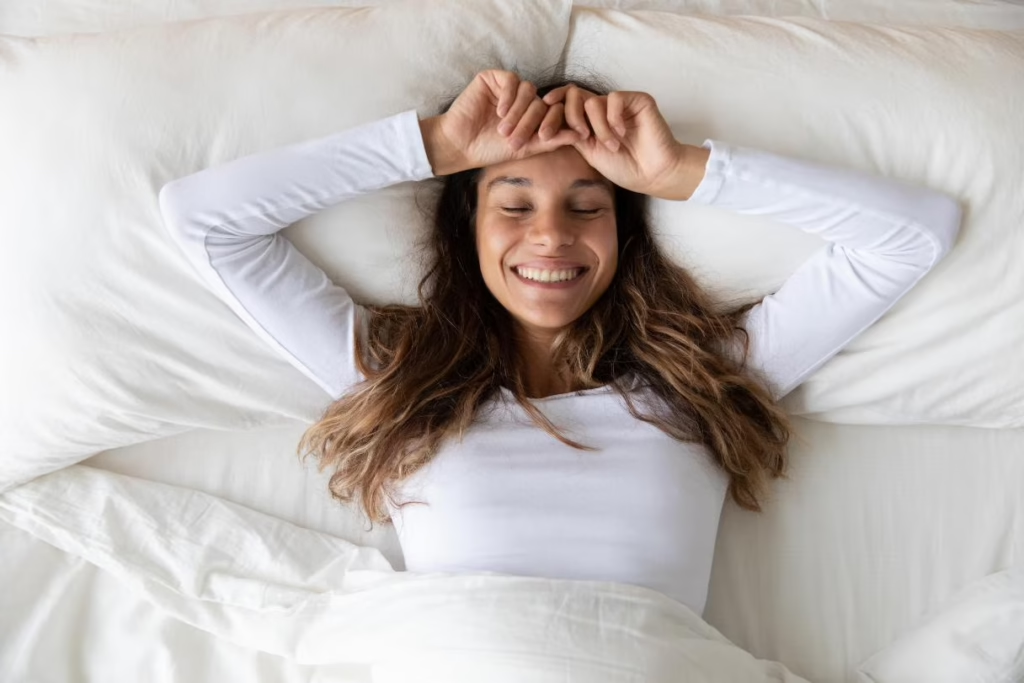
The Methodology of Sleep Study Ipswich
The research team employed various techniques to collect accurate and reliable information on sleep habits, sleep quality, and potential sleep disorders prevalent in the region.
The Role of Sleep Studies in Health Research
Sleep studies play a vital role in health research, as they allow researchers to examine sleep patterns objectively. Through polysomnography, a diagnostic test used in sleep studies, researchers can monitor brain waves, breathing patterns, heart rate, and other physiological parameters during sleep. This data enables a comprehensive analysis of sleep patterns and helps identify any abnormalities or disorders that may exist. Learn more about heart rate, click here.
How Sleep Studies are Conducted
In the sleep study in Ipswich, participants were required to spend a night in a specially equipped sleep laboratory. During their stay, their sleep was monitored using advanced polysomnography equipment. Additionally, participants were required to provide detailed information about their sleep routines, lifestyle habits, and any sleep-related symptoms they may have experienced. This multi-faceted approach ensured that the sleep study captured a comprehensive picture of sleep patterns in the Ipswich region.
The sleep laboratory in Ipswich was designed to create a comfortable and relaxing environment for participants. The rooms were soundproofed to minimize external disturbances, and the bedding was carefully selected to provide optimal comfort. Soft lighting and soothing decor were used to promote a sense of tranquility, facilitating a more natural sleep experience for the participants. Learn more about Sleep Study Referral: Understanding the Process and Requirements visit at https://mhsblogs.com/sleep-study-referral-understanding-the-process-and-requirements/.
Furthermore, the research team in Ipswich included experienced sleep specialists who oversaw the entire study process. These experts were trained to analyze the data collected during the sleep study accurately. Their expertise allowed for the identification of subtle patterns in sleep behavior and the interpretation of complex sleep data, ensuring that the results of the study were thorough and insightful.
Analysing Sleep Patterns in Queensland
The analysis of sleep patterns in Queensland revealed several interesting findings. These findings not only provide valuable insights into the sleep habits of the region but also shed light on the prevalence of sleep disorders and the impact of lifestyle choices on sleep quality.
Understanding the nuances of sleep patterns is crucial for maintaining overall health and well-being. By delving into the sleep habits of Queensland residents, researchers were able to uncover valuable information that can help individuals make informed decisions about their sleep hygiene and seek appropriate interventions when needed.
Common Sleep Disorders in Queensland
One of the key findings from the sleep study in Ipswich was the high prevalence of sleep disorders in Queensland. Sleep apnea, insomnia, and restless leg syndrome were identified as the most common sleep disorders in the region. These disorders can significantly disrupt sleep continuity and quality, leading to daytime sleepiness and impaired daytime functioning.
It is essential for healthcare providers to be aware of the prevalence of these sleep disorders in Queensland to ensure timely diagnosis and management. By addressing these issues effectively, individuals can improve their overall quality of life and reduce the risk of associated health complications.
Impact of Lifestyle on Sleep Patterns
Another fascinating finding from the sleep study highlighted the impact of lifestyle on sleep patterns. It was observed that individuals who engaged in regular physical activity, maintained a healthy diet, and practiced effective stress management techniques experienced better sleep quality. On the other hand, those with sedentary lifestyles, poor dietary habits, and high stress levels had a higher prevalence of sleep disturbances.
These findings underscore the importance of adopting a healthy lifestyle to promote restful sleep. By incorporating physical activity, nutritious eating habits, and stress-reducing activities into daily routines, individuals can optimize their sleep patterns and enhance their overall well-being. Making conscious choices to prioritize sleep can have a profound impact on both physical and mental health, ultimately leading to a more fulfilling and energized life.

Findings from Sleep Study Ipswich
The findings from the sleep study in Ipswich provided invaluable insights into various aspects of sleep patterns, which have important implications for public health and well-being.
Understanding the nuances of sleep patterns is crucial for identifying potential areas of improvement in sleep hygiene and overall health. The study delved deep into the sleep habits of individuals in Ipswich, shedding light on both quantitative and qualitative aspects of their rest. By examining factors such as bedtime routines, sleep environment, and sleep disturbances, researchers were able to paint a comprehensive picture of the sleep landscape in the region.
Key Insights into Sleep Patterns
One significant insight gained from the study was the average sleep duration of individuals in the Ipswich region. It was found that the majority of participants were not meeting the recommended sleep duration, which contributes to the overall sleep debt in the population. Additionally, the study revealed that the sleep efficiency, a measure of the time spent asleep while in bed, was significantly lower than expected, indicating possible disturbances in sleep quality.
Furthermore, the study also explored the impact of lifestyle factors such as screen time before bed, caffeine consumption, and stress levels on sleep patterns. These additional layers of analysis provided a more holistic view of the factors influencing sleep quality and duration among Ipswich residents, offering valuable insights for future interventions and support programs.
Implications of the Study for Public Health
The implications of the sleep study in Ipswich for public health are far-reaching. The findings highlight the urgent need for sleep health education and awareness campaigns in Queensland. By promoting the importance of a good night’s sleep and providing evidence-based strategies to improve sleep habits, public health initiatives can positively influence the overall well-being and productivity of individuals in the region.
Moreover, the data from the study can serve as a foundation for policy development aimed at creating sleep-friendly environments in workplaces, schools, and communities. By prioritizing sleep as a fundamental pillar of health, policymakers can work towards implementing systemic changes that support healthy sleep habits and address the root causes of inadequate rest. Collaborative efforts between health authorities, educational institutions, and local businesses can help create a culture that values and prioritizes sleep, ultimately leading to a healthier and more vibrant population in Ipswich and beyond.
Improving Sleep Health in Queensland
Based on the findings from the sleep study, it is evident that efforts need to be made to improve sleep health in Queensland. Implementing …
Read MoreSleep Study Referral: Understanding the Process and Requirements
In today’s fast-paced world, getting a good night’s sleep has become increasingly difficult for many individuals. From hectic work schedules to the constant distractions of technology, it’s no wonder that sleep disorders are on the rise. If you’re experiencing persistent sleep issues, your healthcare provider may recommend a sleep study to further investigate the cause of your sleep problems. Understanding the process and requirements of a sleep study can help you prepare and ensure a smooth experience.
Understanding Sleep Studies
What is a Sleep Study?
A sleep study, also known as polysomnography, is a non-invasive test that monitors and evaluates various aspects of your sleep. It involves spending a night at a sleep center, where trained healthcare professionals observe and record your sleep patterns, breathing, heart rate, brain activity, and other physiological parameters. The data collected during a sleep study provide valuable insights into the quality and quantity of your sleep, as well as any potential sleep disorders you may have.
Importance of Sleep Studies
Sleep studies play a crucial role in diagnosing and managing sleep disorders such as insomnia, sleep apnea, narcolepsy, and restless leg syndrome. By identifying the root cause of your sleep disturbances, healthcare professionals can develop personalized treatment plans to improve your sleep quality and overall well-being. Moreover, untreated sleep disorders can lead to serious health concerns, including cardiovascular issues, cognitive impairment, and decreased immune function. Therefore, undergoing a sleep study referral can be a pivotal step towards better health.
Types of Sleep Studies
There are different types of sleep studies that can be conducted based on the specific sleep disorder suspected. For example, a split-night sleep study involves diagnostic testing for sleep apnea during the first half of the night, followed by continuous positive airway pressure (CPAP) therapy during the second half to determine the optimal treatment. Multiple sleep latency tests (MSLT) are used to diagnose narcolepsy by measuring how quickly you fall asleep during the day. Additionally, maintenance of wakefulness tests (MWT) assess your ability to stay awake during the day, which is crucial for professions that require high levels of alertness. Learn more about Sleep Study Ipswich: Analysing Sleep Patterns in Queensland visit at https://mhsblogs.com/sleep-study-ipswich-analysing-sleep-patterns-in-queensland/
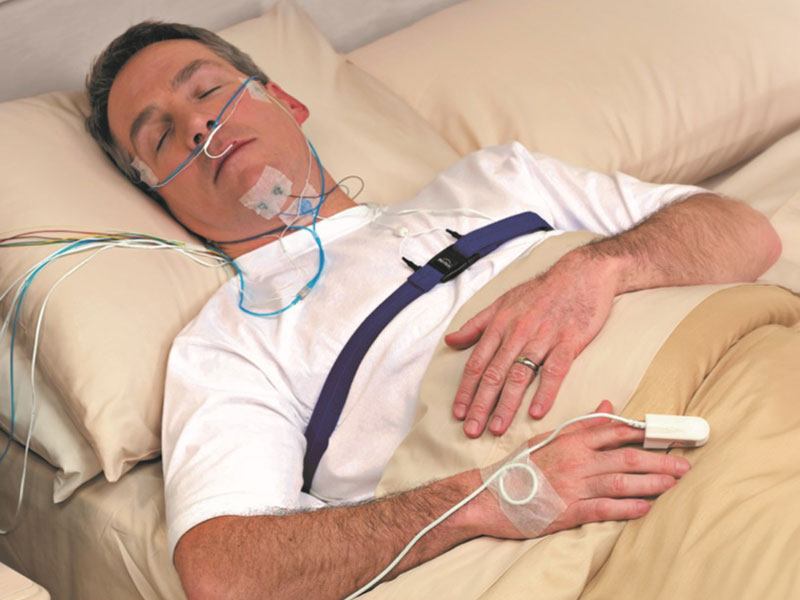
Preparing for a Sleep Study
Prior to a sleep study, it is important to follow certain guidelines to ensure accurate results. This may include avoiding caffeine and alcohol consumption, as well as certain medications that could interfere with the monitoring equipment. It is also recommended to bring comfortable sleepwear and any items that help you relax before bedtime, such as a favorite book or pillow. Creating a sleep-conducive environment at the sleep center can help you feel more at ease and mimic your typical bedtime routine for a more accurate assessment of your sleep patterns.
The Referral Process for Sleep Studies
When it comes to the referral process for sleep studies, understanding who can refer you is crucial. Sleep studies are typically recommended by a variety of healthcare professionals, including primary care physicians, pulmonologists, neurologists, or sleep medicine specialists. These specialists are trained to identify and diagnose sleep disorders, making them well-equipped to determine if a sleep study is necessary for your specific situation. Learn more about pulmonologists click here.
Who Can Refer You for a Sleep Study?
Sleep studies are typically recommended by primary care physicians, pulmonologists, neurologists, or sleep medicine specialists. If you’re experiencing persistent sleep problems, it’s important to discuss your symptoms and concerns with your healthcare provider. Based on your medical history, symptoms, and initial evaluations, they will determine whether a sleep study is necessary.
Primary care physicians are often the first point of contact for individuals experiencing sleep issues. They can conduct initial assessments, provide basic treatments, and refer you to specialists if needed. Pulmonologists specialize in respiratory conditions and can identify sleep-related breathing disorders like sleep apnea. Neurologists focus on disorders of the nervous system, including conditions that affect sleep patterns. Sleep medicine specialists have specific training in sleep disorders and can offer comprehensive evaluations and treatments.
Steps in the Referral Process
The referral process may vary depending on your healthcare provider and local practices. Generally, it involves an initial consultation where you discuss your sleep concerns, followed by a physical examination and a review of your medical history. Your healthcare provider will then assess whether you meet the criteria for a sleep study referral. If a referral is deemed appropriate, they will provide further instructions on how to proceed.
During the initial consultation, it’s important to provide detailed information about your sleep habits, symptoms, and any factors that may be affecting your sleep quality. This will help your healthcare provider make an informed decision about whether a sleep study is necessary. Additionally, be prepared to discuss any underlying medical conditions, medications you’re taking, and lifestyle factors that could impact your sleep.
Requirements for a Sleep Study Referral
Are you struggling with persistent fatigue, loud snoring, or frequent awakenings during the night? These symptoms could be indicative of an underlying sleep disorder that warrants a thorough evaluation through a sleep study. While each case is unique, there are several medical conditions and symptoms that may prompt a healthcare provider to recommend a sleep study referral.
In addition to the common symptoms like excessive daytime sleepiness and morning headaches, individuals with underlying medical conditions such as obesity, heart disease, and diabetes are at a higher risk of developing sleep disorders. The presence of conditions like sleep apnea, restless legs syndrome, or insomnia can significantly impact your overall health and quality of life. Therefore, a comprehensive sleep study evaluation is crucial in identifying and addressing these issues effectively. Learn more about common symptoms visit at https://uhs.princeton.edu/health-resources/common-illnesses.
Medical Conditions that Warrant a Sleep Study
While each case is unique, there are several medical conditions and symptoms that may warrant a sleep study referral. These include excessive daytime sleepiness, loud snoring, frequent awakenings during the night, morning headaches, gasping or choking during sleep, and witnessed pauses in breathing. Additionally, individuals with underlying medical conditions such as obesity, heart disease, and diabetes are at an increased risk of developing sleep disorders and may require a sleep study evaluation.
It’s essential to recognize the potential impact of untreated sleep disorders on your overall health and well-being. By addressing these issues proactively, you can improve your sleep quality, enhance your daytime functioning, and reduce the risk of associated health complications.
Necessary Documentation for a Referral
When seeking a sleep study referral, it’s important to provide your healthcare provider with accurate and detailed information. This may include a comprehensive list of your symptoms, information about your sleep habits and patterns, any previous sleep study results, and a list of current medications. By sharing this information, you can assist your healthcare provider in making an informed decision regarding your sleep study referral.
Remember, a sleep study is a valuable tool in diagnosing and managing various sleep disorders. By collaborating with your healthcare team and actively participating in the evaluation process, you can take proactive steps towards improving your sleep quality and overall health.
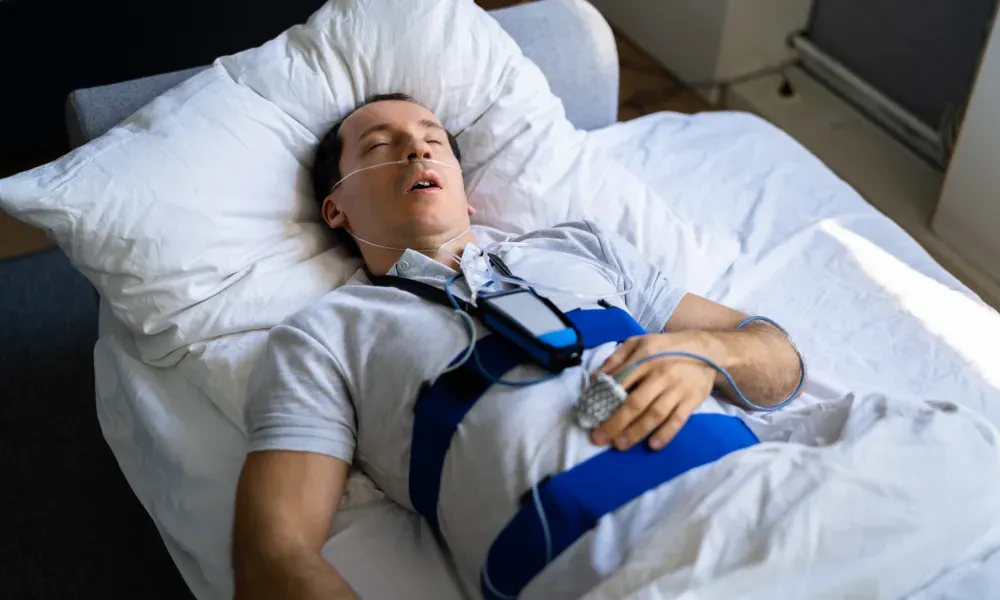
Preparing for Your Sleep Study
Embarking on a sleep study can be a new and somewhat daunting experience for many individuals. However, understanding what lies ahead can help ease any apprehensions you may have. Upon your arrival at the sleep center, you will be ushered into a cozy room meticulously designed for sleep studies. The array of monitoring equipment, though extensive, is completely painless and non-intrusive. Tiny sensors will be affixed to different parts of your body to monitor a range of vital signs including brain waves, eye movements, breathing patterns, heart rate, and muscle activity. Despite the initial strangeness of being hooked up to these devices, sleep centers take great care to cultivate a serene and homelike ambiance to ensure you have a restful and comfortable sleep environment.
What to Expect During the Study
Throughout the night, trained professionals will discreetly monitor your sleep patterns and vital signs from a separate control room. They will observe your responses to various sleep stages and disturbances, all while ensuring your safety and well-being. The data collected during the study will provide valuable insights into your sleep quality and any underlying sleep disorders that may be affecting your rest. By participating in a sleep study, you are taking a proactive step towards understanding and improving your sleep health.
Tips for the Night Before Your Study
To ensure the accuracy and effectiveness of your sleep study, it is crucial to adhere to the specific guidelines outlined by the sleep center. These guidelines typically include refraining from the consumption of caffeine or alcohol a few hours before the study, avoiding excessive daytime napping, and sticking to your usual bedtime routine. Additionally, consider bringing along your favorite sleepwear, personal toiletries, and any items that contribute to your sleep comfort, such as a beloved pillow or soothing sleep mask. By following these recommendations, you can optimize the conditions for a successful and informative sleep study experience.
Interpreting Sleep Study Results
Understanding
… Read MoreResMed S9 Autoset CPAP Machine Review
Do you ever just suddenly wake up in the middle of the night gasping for air? Do you find that you are always exhausted during the day? Do you often wake up with headaches and have trouble falling or staying asleep?
All of these are indications that you may be suffering from obstructive sleep apnea, a disorder in which the muscles in your throat block your airway while you are sleeping, forcing you to breathe in short bursts. Having sleep apnea is not an easy condition to live with. It is also possible that it might have a role in the development of health problems such as high blood pressure, heart difficulties, and diabetes.
You will be relieved to know that treatment with Continuous Positive Airway Pressure (CPAP) can help you keep it at bay. Every night, it will help you breathe easier and get a better night’s sleep by blowing pressured air into your airway, preventing your throat from contracting and allowing you to breathe normally again. It even helps with snoring difficulties, which means that you will never again have to worry about waking up your sweetheart in the middle of the night!
See Also: The Best CPAP Machine and Accessories Cleaner Available
However, therapy with CPAP is not as straightforward as taking a tablet every day. If you want to be able to get a good night’s sleep despite using a CPAP machine, you need to look into your options. The ResMed S9 AutoSet CPAP Machine is only one example of the type of CPAP machine that has received several ecstatic reviews on the internet.
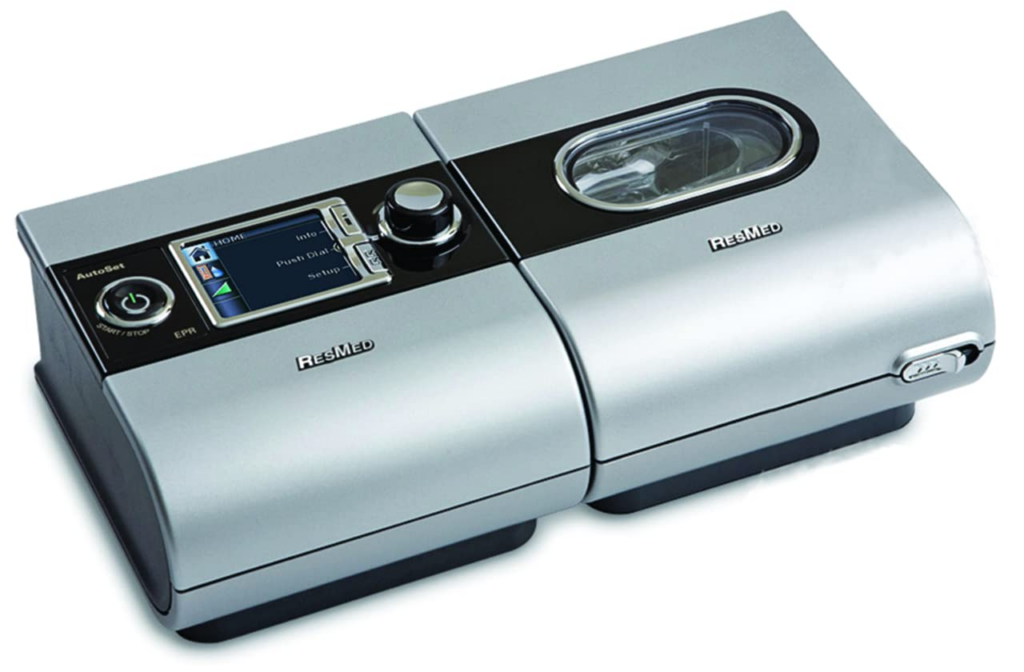
In this review, let us take a more in-depth look at a popular choice among the audience:
Overview
One of the most widely used continuous positive airway pressure (CPAP) machines available today is the ResMed S9, and for good reason. It has a low profile, is simple to operate, and comes highly recommended by both medical professionals and their patients.
In ResMed’s S9 series, the S9 AutoSet is the most advanced and comprehensive auto-adjusting device available. It is equipped with the Easy-Breathe technology, which enables you to maintain your natural breathing pattern even while using the CPAP mask.
This CPAP machine is backed by ResMed, one of the most reputable names in the business, and has a number of accessories and attachments that may all help you breathe easier while you sleep. ResMed is also one of the companies that invented the CPAP machine.
Principal Attributes
- Climate Control Heated Humidifier: The H5i Heated cpap Humidifier provides optimal relief from dryness and congestion by utilising clever humidity management technology. However, you should be aware that this attachment is not required to use your CPAP machine and may be purchased separately as an add-on accessory.

- Intuitive Interface: The gadget features a screen that is completely colourful and has controls that are simple to use. In addition to this, it is simple to set up as long as the directions in the manual are followed. The heated humidifier attachment of the CPAP machine may be removed quickly and conveniently for the purposes of cleaning and transporting the device.
- Smart Start / Smart Stop: ResMed’s Smart-Start and Smart-Stop technologies enable you to automatically start your machine by breathing into the mask. This saves you time and eliminates the need to manually turn it on. Taking off the mask will also result in the termination of your CPAP treatment.
- Mask-Fit System: The ResMed S9 AutoSet CPAP Machine features a Mask-Fit System, which enables the user to first evaluate the fit of the mask before using the device. Because of this, it is simple to determine whether or not there is a leak.
- Easy-Breathe Technology: The ResMed S9 AutoSet automatically changes the pressure so that it only gives the exact amount of pressure that is necessary from breath to breath. This technology is part of ResMed’s Easy-Breathe Technology. Because to this technology, you will be able to breathe through the mask in a manner that is completely natural and unrestricted, just as if you were not utilising a CPAP or VPAP machine at all. There is no need for controllers or switches, both of which may be easy to lose track of.
- SlimLine Tubing: The reduced circumference of the SlimLine tubing helps reduce the amount of drag that is exerted by your mask, which in turn improves the overall fit of the mask and the level of comfort experienced when sleeping.
- Advanced Data Reporting Directly on the Display: On the device itself, the ResMed S9 AutoSet displays an overview of your current sleep apnea treatment settings. The data that was collected includes things like the typical amount of time utilised, the number of hours used, the number of days used, the run hours, and the pressure.
The Pros and Cons of the ResMed S9 AutoSet CPAP Machine
The Positives: The ResMed S9 AutoSet CPAP machine technology adjusts itself breath by breath, just as the needs arises; it is noiseless; the ResMed S9 auto-set CPAP machine has an intuitive design and user-friendly controls which makes it easier for patients to operate and get along with; the ResMed S9 auto-set CPAP machine also has been highly rated by both medical professionals and patients because of its awesome user experience. The machine is very comfortable to use, and it comes with an optional humidifier connection, and with optional heated tubing.
The Negatives: because of the amazing features of the ResMed S9 auto-set CPAP machine, it can become costly for many people to afford, especially if you’re paying for it from your own pocket. If it is not covered by Medicare, it can be out of budget for many people.
At Air Liquide Healthcare, we provide amazing CPAP machine and accessories options for people to treat their sleep apnea condition, if you want more clarity and professional advice about this condition, you should book a consultation session with our sleep specialist today!
… Read MoreWhat Does a High CPAP AHI Mean?
Users of continuous positive airway pressure (CPAP) devices and apps often report feeling confused by the data they are presented with. The AHI is one such, if not the most significant measures that your CPAP machine records. In this article, we’ll discuss how to evaluate your AHI and what steps you may take to bring it down if necessary.
In CPAP terms, what does an AHI mean?
Apnea-hypopnea index is the abbreviation for this measurement. Sleep studies are the gold standard for estimating AHI. The word REI (respiratory event index) may be used instead of AHI in a home sleep apnea test result.

When you remove your CPAP mask in the morning, many devices may display information about your use the night before, including your AHI. To differentiate this value from the AHI that is determined by the gold standard, a sleep study, I prefer to call it the “calculated AHI” or cAHI.
With the use of a CPAP machine’s smartphone app, you may collect and analyze more data over time. You need to connect your CPAP machines to a clinical database in order to get the full range of available information. The AHI is broken down into snoring, central apneas, obstructive apneas, and hypopneas, which I, as a sleep physician, can access.
CPAP: what’s a decent AHI?
In most cases, the cAHI should be set at or below 5, as this value indicates the absence of sleep apnea as determined by a sleep study. From what I’ve seen, a cAHI of 5 or less is considered good, but a cAHI of 3 or less indicates that your sleep apnea is under excellent control. Please be aware that I have never encountered a zero AHI. No matter how well you program your system, it will always estimate a small number of breathing occurrences as a residual.
“Treat the patient, not the numbers” is a common medical maxim. Nighttime oxygen level studies are frequently checked if an AHI is high despite the patient’s report of good sleep and general well-being during the day. I will not adjust the CPAP settings if oxygen levels are within normal range. You can read about CPAP and Bi-level PAP Therapy: New and Established Roles by clicking here.
Ways the CPAP machine reports the AHI
An AHI estimate is calculated by CPAP devices using proprietary algorithms. We sleep doctors think the gadget “pings” your airway with little bursts of air to test if it is open, measuring resistance to the airflow they are trying to provide.

For example, a CPAP machine will “ping” your airway if it detects a lack of airflow for more than 10 seconds. An obstructive apnea is detected if the air packet is reflected back to the monitor, indicating that the airway was blocked. If the air packet doesn’t come back, it indicates that your airway was clean and that this apnea was central. Hypopneas are thought to occur when there is a sudden and dramatic increase in resistance to the airflow given by the CPAP for at least 10 seconds.
Keep in mind that the cAHI should be viewed with caution because CPAP devices do not conduct diagnostic sleep studies on you on a nightly basis. Visit http://mhsblogs.com/guide-on-how-to-set-up-your-cpap-pressure-correctly/ to read about the Guide on How to Set Up Your CPAP Pressure Correctly.
Is the CPAP AHI reliably accurate?
Not at all true. Keep in mind that the cAHI can provide you a very accurate picture of how well you’re performing overall. Moreover, it is essential to examine the data patterns, rather than relying on a single night’s worth of information, before drawing any judgments. Mask seal, alcohol consumption, drugs, body posture, altitude, and other variables can all affect AHI from one night to the next. Before evaluating whether or not a CPAP machine has to be changed based on the cAHI, we want to gather at least two weeks of continuous data.
By and large, we have found that the AHI from a sleep study done on the same patient while they were using CPAP is much greater than the cAHI from the CPAP machine. The cAHI may be grossly underestimating the true incidence of residual abnormal breathing occurrences, as we believe it does.
The cAHI can give you a ballpark figure for how many residual abnormal breathing episodes you’re averaging each hour, but it shouldn’t be seen as gospel.
How can a CPAP’s AHI be reduced?
To put it simply, high leak is the most prevalent cause of a high cAHI. Your airway will continue to collapse if air is exiting from the system rather than entering your throat. When a leak occurs, it might be one of two types: the mouth leak and the mask leak.
The most prevalent sign of a leaking mouth is a persistently dry mouth when you wake up. Wearing a full-face mask or chin strap if you’re experiencing this is highly recommended.
If your CPAP mask is leaking, you need to replace it. Those who use CPAP and sleep on their side may also require a certain type of pillow.
Complex sleep apnea, in which you have obstructive sleep apnea before starting CPAP, can also lead to a high CPAP AHI.
With this issue, there may be a need for you to adjust the pressure in your machine. Among the many possible ways to this are:
The pressure reading from your machine may be inaccurate for you due to a number of reasons, including but not limited to: your body weight; some kind medical conditions that might exacerbate sleep apnea, such as hypothyroidism, PCOS, atrial fibrillation, heart attacks, and strokes; New drugs that can impact muscle tone or the diameter of your airway, such as testosterone;
If your AHIs have been consistently high and the cause does not appear to be a leak, you should consult a sleep specialist.
… Read MoreRecent Posts
 Sleep Study Ipswich: Analysing Sleep Patterns in QueenslandSleep is a fundamental aspect of our daily lives, yet it is often overlooked and undervalued. In recent years, sleep disorders have been on the rise, leading to a growing concern for public health. To shed light on this issue, a comprehensive sleep study […]
Sleep Study Ipswich: Analysing Sleep Patterns in QueenslandSleep is a fundamental aspect of our daily lives, yet it is often overlooked and undervalued. In recent years, sleep disorders have been on the rise, leading to a growing concern for public health. To shed light on this issue, a comprehensive sleep study […] Sleep Study Referral: Understanding the Process and RequirementsIn today's fast-paced world, getting a good night's sleep has become increasingly difficult for many individuals. From hectic work schedules to the constant distractions of technology, it's no wonder that sleep disorders are on the rise. If you're […]
Sleep Study Referral: Understanding the Process and RequirementsIn today's fast-paced world, getting a good night's sleep has become increasingly difficult for many individuals. From hectic work schedules to the constant distractions of technology, it's no wonder that sleep disorders are on the rise. If you're […]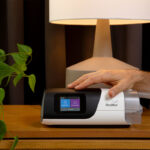 ResMed AirMini vs Traditional CPAP Machines: A Comparative AnalysisIn the world of sleep apnea treatment, Continuous Positive Airway Pressure (CPAP) therapy has proven to be highly effective in improving the quality of sleep for patients. CPAP machines work by providing a constant flow of air to keep the airways open […]
ResMed AirMini vs Traditional CPAP Machines: A Comparative AnalysisIn the world of sleep apnea treatment, Continuous Positive Airway Pressure (CPAP) therapy has proven to be highly effective in improving the quality of sleep for patients. CPAP machines work by providing a constant flow of air to keep the airways open […]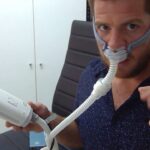 Tips for Optimizing Your Experience with the ResMed AirMiniThe ResMed AirMini is a compact and convenient device that offers a host of features to enhance your sleep experience. Whether you are new to using this device or looking for ways to improve your current setup, this article will provide you with valuable […]
Tips for Optimizing Your Experience with the ResMed AirMiniThe ResMed AirMini is a compact and convenient device that offers a host of features to enhance your sleep experience. Whether you are new to using this device or looking for ways to improve your current setup, this article will provide you with valuable […] Eye Surgery, LASIK vs Contact Lenses: Which One Should You Choose?Eye surgery, LASIK, or laser vision correction. The procedure goes by many names, but regardless of what you call it, LASIK surgery is one of the most popular permanent options for those with poor vision. But while laser eye surgery works for various […]
Eye Surgery, LASIK vs Contact Lenses: Which One Should You Choose?Eye surgery, LASIK, or laser vision correction. The procedure goes by many names, but regardless of what you call it, LASIK surgery is one of the most popular permanent options for those with poor vision. But while laser eye surgery works for various […]![Is Laser Eye Surgery Worth the Cost? [Complete Guide]](https://mhsblogs.com/wp-content/uploads/2023/05/LASIK-SMILE-and-PRK2-150x150.jpg) Is Laser Eye Surgery Worth the Cost? [Complete Guide]You may be considering going for laser eye surgery soon. The entire laser eye surgery procedure is quick and painless and eliminates the need for glasses or contact lenses for a very long time. However, laser vision correction can also be expensive. […]
Is Laser Eye Surgery Worth the Cost? [Complete Guide]You may be considering going for laser eye surgery soon. The entire laser eye surgery procedure is quick and painless and eliminates the need for glasses or contact lenses for a very long time. However, laser vision correction can also be expensive. […] Looking to use your CPAP machine during winterUsing a CPAP (Continuous Positive Airway Pressure) device is an effective treatment for obstructive sleep apnea. Depending on the time of year and where you are located, you may need to adjust your CPAP treatment accordingly. For example, more humidity […]
Looking to use your CPAP machine during winterUsing a CPAP (Continuous Positive Airway Pressure) device is an effective treatment for obstructive sleep apnea. Depending on the time of year and where you are located, you may need to adjust your CPAP treatment accordingly. For example, more humidity […]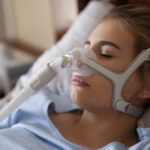 Travel easily with your CPAP machines with these tipsYou must bring your CPAP machines, which is a device often used to treat sleep apnea, everywhere you travel if you need it. Fortunately, traveling with CPAP machines need not be difficult, though some models make it easier than others. Many individuals […]
Travel easily with your CPAP machines with these tipsYou must bring your CPAP machines, which is a device often used to treat sleep apnea, everywhere you travel if you need it. Fortunately, traveling with CPAP machines need not be difficult, though some models make it easier than others. Many individuals […]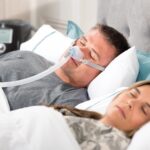 Use your CPAP machines easily with these tipsEverybody's CPAP adjustment is unique. While some people acclimatize to their therapy right away, others take longer to feel comfortable. Here are some essential guidelines for utilizing CPAP machines and mask while trying to get some rest: 1. Start your […]
Use your CPAP machines easily with these tipsEverybody's CPAP adjustment is unique. While some people acclimatize to their therapy right away, others take longer to feel comfortable. Here are some essential guidelines for utilizing CPAP machines and mask while trying to get some rest: 1. Start your […]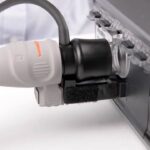 The Best CPAP Machine and Accessories Cleaner AvailableAnyone who has used a CPAP machine for more than a day has certainly wished there was a simpler method to clean the many parts and pieces that go along with it. Automatic CPAP cleaners claim to do this for you with the touch of a button; the question is, […]
The Best CPAP Machine and Accessories Cleaner AvailableAnyone who has used a CPAP machine for more than a day has certainly wished there was a simpler method to clean the many parts and pieces that go along with it. Automatic CPAP cleaners claim to do this for you with the touch of a button; the question is, […]

